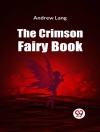In 'Holiday Tales: Christmas in the Adirondacks, ’ W. H. H. Murray weaves a tapestry of stories that reflect the warmth and beauty of Christmas in the rustic wilderness of the Adirondack Mountains. Combining vivid descriptions with heartfelt narratives, Murray encapsulates the spirit of the holiday season through the lens of nature. His literary style is infused with a sense of nostalgia and romanticism that harkens back to the 19th-century American literary tradition, inviting readers to immerse themselves in a world of adventure, community, and the serene allure of winter. This collection not only entertains but also serves as a reminder of the enduring values of family, friendship, and the joys of simple living amidst the backdrop of the majestic New York landscape. W. H. H. Murray, a prominent figure in 19th-century American literature, was deeply influenced by his experiences as a naturalist and a passionate advocate for the preservation of wild spaces. His writings often reflect his love for the outdoors and the transformative power of nature. Through his narratives, Murray aimed to inspire others to value and protect the natural world, making 'Holiday Tales’ a significant thematic extension of his environmental ethos. I highly recommend 'Holiday Tales: Christmas in the Adirondacks’ to anyone seeking a blend of heartwarming storytelling and evocative imagery. Whether you are a lover of nature, a holiday enthusiast, or simply in search of engaging tales that offer a glimpse into the past, Murray’s work provides a delightful and enriching experience that captures the essence of Christmas in a bygone era.
O autorze
William Henry Harrison Murray, commonly known as W.H.H. Murray, was a prominent figure in 19th-century American literature, an ordained minister, and an early advocate of wilderness preservation. Born in Guilford, Connecticut, in 1840, he was colloquially referred to as 'Adirondack’ Murray due to his significant contributions framing the Adirondacks as an ideal destination for recreation and rejuvenation. Murray’s vivid chronicling of outdoor adventures served not only as escapism for his readers but also as a catalyst for tourism in the Adirondacks. His seminal work, 'Holiday Tales: Christmas in the Adirondacks, ’ showcases his literary style, which blends humor with vivid descriptions of nature and character-driven plots, wrapped in the warmth of holiday sentiment. The book is a collection of stories illuminating the human experience through the lens of the rugged, yet picturesque, Northern New York wilderness. His writings often reflected his belief in the spiritual and health benefits of nature, an ethos that predated and possibly influenced the conservation movement. Despite facing criticism by some contemporaries for romanticizing wilderness life, Murray’s works remain an essential part of the literary canon that celebrates the natural world, while they also offer a window into the cultural attitudes of his era.












